Brics meet in South Africa, South Korea on the defensive, a theatre under the spotlight in Bangkok and a Pulitzer-prize winner’s new novel.
London / Zürich / Milan / Tokyo /
Bangkok / Singapore / Los Angeles

SPONSORED BY
|
|
Opinion / Christopher Cermak
Money talks
Tickets to the annual Iowa State Fair, which ended yesterday, went up by $2 (€1.84) this year. Iowa’s Republican senator, Joni Ernst, spoke sorrowfully on behalf of families who couldn’t attend as a result of living from “paycheck to paycheck”. If you listen to Ernst or the numerous Republican presidential candidates appearing at the fair, which has long been an obligatory campaign stop for budding White House hopefuls, then there’s one thing to blame for such ruinous inflation: Bidenomics.
Joe Biden, for his part, has been happily leaning into this moniker as of late. “Guess what? It’s working,” he said, marking the first anniversary of the Inflation Reduction Act last week, his signature piece of legislation. He regularly contrasts his approach, which aims to strengthen the middle class, with that of “top-down” Republicans who reward the wealthy. It’s astounding how little our stale economic-policy debate (top-down versus bottom-up, high-tax versus low-tax) has changed over the past few decades. And how little it matters.

In reality, politicians have had even less control over this inflation cycle than most: prices are coming down as the shock of the war in Ukraine subsides and the pandemic disappears further from view. But it’s not yet where we would like it to be: US consumer prices rose 3.2 per cent year-on-year in July, lower than analysts had expected but nevertheless up slightly again from June. Inflation over the past few years has been a huge problem and not only in the US. It’s less a story of government policy than it is about central banks, interest rates, foreign wars and consumer habits.
Of course, this reality has never stopped politicians from taking credit when times are good or getting punished by voters when times are bad. But, really, we should know better. There’s plenty to blame politicians for these days but let’s focus on what is actually in their control, even as we grumble about that overpriced fairground ticket.
Christopher Cermak is Monocle’s Washington correspondent. For more opinion, analysis and insight, subscribe to Monocle today.
|
|
Diplomacy / South Africa
Road bloc ahead
Leaders of the so-called Brics countries are set to meet in South Africa tomorrow to discuss how to turn their group of nations, which account for a quarter of the global economy, into a bloc that can challenge Western dominance. Among the most pressing topics on the agenda for Brazil’s president Luiz Inácio Lula da Silva, India’s prime minister Narendra Modi, China’s leader Xi Jinping (pictured) and South Africa’s Cyril Ramaphosa – Vladimir Putin is not attending – will be the topic of the group’s expansion.
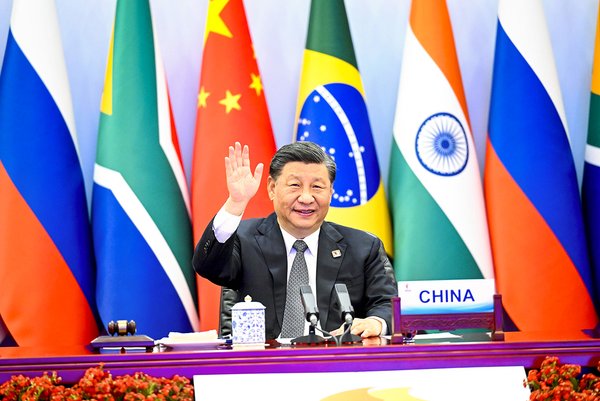
While some 40 countries, including Saudi Arabia, Argentina and Egypt, have shown interest in joining the bloc, members are split on whether they should let them in. Xi, who is bent on expanding China’s sphere of influence to curtail the US’s geopolitical reach, wants to enlarge the bloc quickly but Brazil is more reluctant. India, meanwhile, is undecided. Regardless of the outcome, the long waiting list is a testament to Brics’s influence among developing countries and proof that, while the prospect of a multipolar world feels like a distant reality, the bloc still wields considerate power.
|
|
Sponsored by Financial Times
|
|
Defence / USA & South Korea
Resistance exercise
The US and South Korea have commenced three days of joint military drills in an operation that North Korea has dubbed a “rehearsal for nuclear war”. The allies are mobilising tens of thousands of troops as part of the Ulchi-Freedom Guardian exercises, which aim to improve their ability to collaborate and respond to any possible aggression from North Korea.
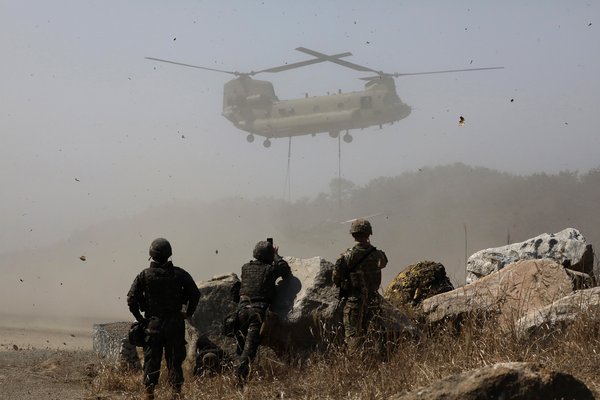
According to colonel Lee Sung-jun, South Korea’s Joint Chiefs of Staff (JCS) spokesman, the training is essential to maintaining the country’s defensive capabilities in the face of external military threats. In response, Kim Jong-un has called for an increase in missile production. He spent last week visiting the nation’s munitions factories and was quoted as saying that they should begin preparing for war. His statement follows the news that Joe Biden’s offer to meet Kim “without preconditions” had not been received positively.
|
|
Theatre / Bangkok
Act to follow
People of Ari, a new performing arts theatre in Bangkok, is putting local artists centre stage. Entrepreneur Marc Close has spent two years and 34m baht (€930,000) on the project, seeking to bridge a gap between mainstream shows and shoestring Thai-language productions. “Bangkok does restaurants and bars really well but it’s not a mature arts market,” Close tells Monocle on a recent visit. “It’s a cosmopolitan city, so we should have a diverse array of options.”
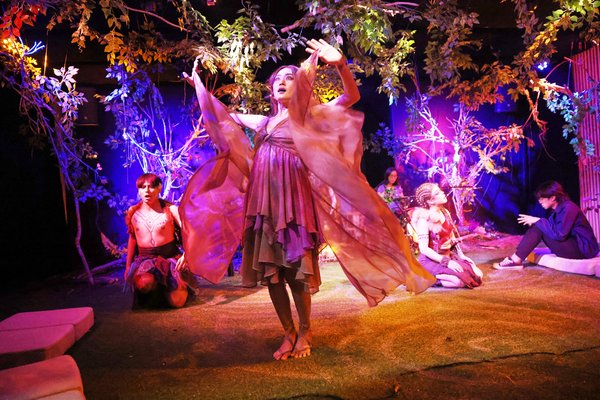
Two vacant shops inside a residential building in the Ari district now house a premium 60-seater, high-spec modular theatre. The inaugural performance, Journey into the Forest, was an interactive musical that sold out its Saturday slots, while a beatboxing Buddhist monk stole the show during the week. Curators Mia Thongpan and Thanisa Durongkaveroj are now dealing with a deluge of requests from Thailand’s creative community to take part. Hopefully, these shows go on.
For more agenda-setting stories on culture and the arts, pick up a copy of Monocle’s September issue. Or subscribe today so that you never miss an issue.
|
|
Financial Times  MONOCLE MONOCLE
|
|
Q&A / New York
One for the books
Over the years, the two-time Pulitzer Prize-winning author, Colson Whitehead, has turned his hand to non-fiction, zombie thrillers and historical fiction. His new novel, Crook Manifesto, is the second book in his Harlem Trilogy, which is set on the chaotic streets of 1970s New York. Monocle caught up with the writer to discuss his latest work.
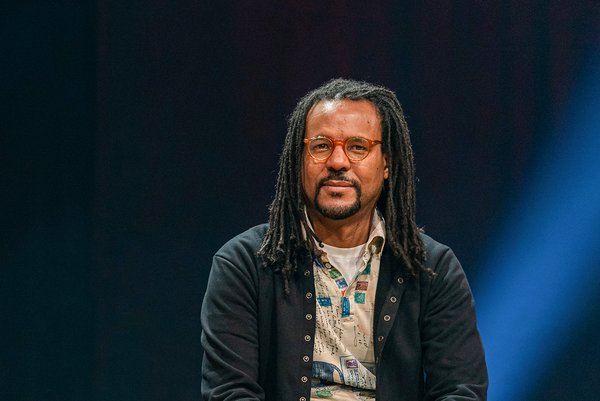
In the novel, the city is such a busy and vibrant character in itself. What did your research process look like?
I was a young child in the early 1970s and I recall that New York was dirty, people were tense and crime was at an all-time high. Usually, primary sources are a great resource. I used slave narratives and survivor accounts to inform my previous books, The Underground Railroad and The Nickel Academy. For my latest novel, I mainly used newspapers and did a lot of walking around Harlem.
The language of the city seems to emanate from the pages of the book. How did you manage to capture its essence?
I’m trying to channel the distinct New York personality, which I’m sure overlaps with people in different cities. Whether you’re a master criminal, petty thief, Wall Street fat cat or someone just trying to get home and make dinner, there’s a certain survival attitude and a cynicism. We’re all stuck on this island together, trying to make it home at the end of the day.
Your protagonist, Ray Carney, is both a small-time crook and a furniture salesman. His character is tied to detailed descriptions of his shop. Tell us more.
His psychology is a critique of consumer culture and the capitalist society in which we are all implicated. No matter what is happening, he is still a salesman. There will be bullets zipping by and Molotov cocktails blowing up but he is ignorant to this, examining parquet floors or other little details instead. He was fun to write and there is plenty of humour in the book; furniture descriptions are a good conduit for that.
For our full interview with Colson Whitehead, tune in to this week’s edition of ‘Monocle on Culture’ premiering today at 20.00, on Monocle Radio.
|
|
Monocle Radio / Monocle on Design
Occhio
We meet Axel Meise, founder and chief designer at the German lighting-design brand, at its latest flagship showroom in London.
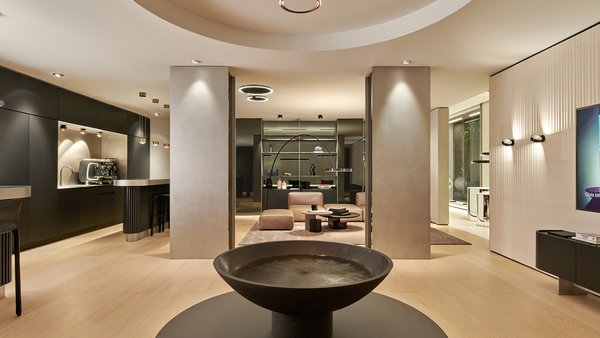
|
|
Monocle Films / Media
Britain’s smallest radio station
Located in the northwestern corner of the Scottish Highlands, Gairloch is a coastal village of about 700 people that is known for its mountains, sea loch and rugged landscape. Monocle paid a visit to Two Lochs, reportedly Britain’s smallest commercial radio station, which is nestled on Gairloch’s shores, run by a handful of volunteers and has a loyal fanbase of global listeners.
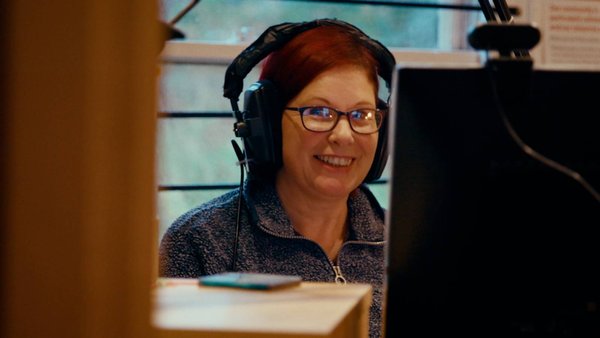
|
|
newsletter / join us
Welcome to our world
Has this been forwarded to you by a friend? Sign up to The Monocle Minute and Monocle Weekend Editions to receive your own bulletin of weekday news and weekend treats.
Image credits: Reuters, Shutterstock, Benya Hegenbarth
To stop receiving all Monocle newsletters, please click here
This email is from Monocle whose registered office is at Midori House, 1 Dorset Street, London, W1U 4EG. You have received this email because you have previously provided us with your email address and subscribed to Monocle bulletins.
© 2023 Monocle.
Stay up to date in your downtime with Monocle’s new weekly newsletter.
|
|
|
|